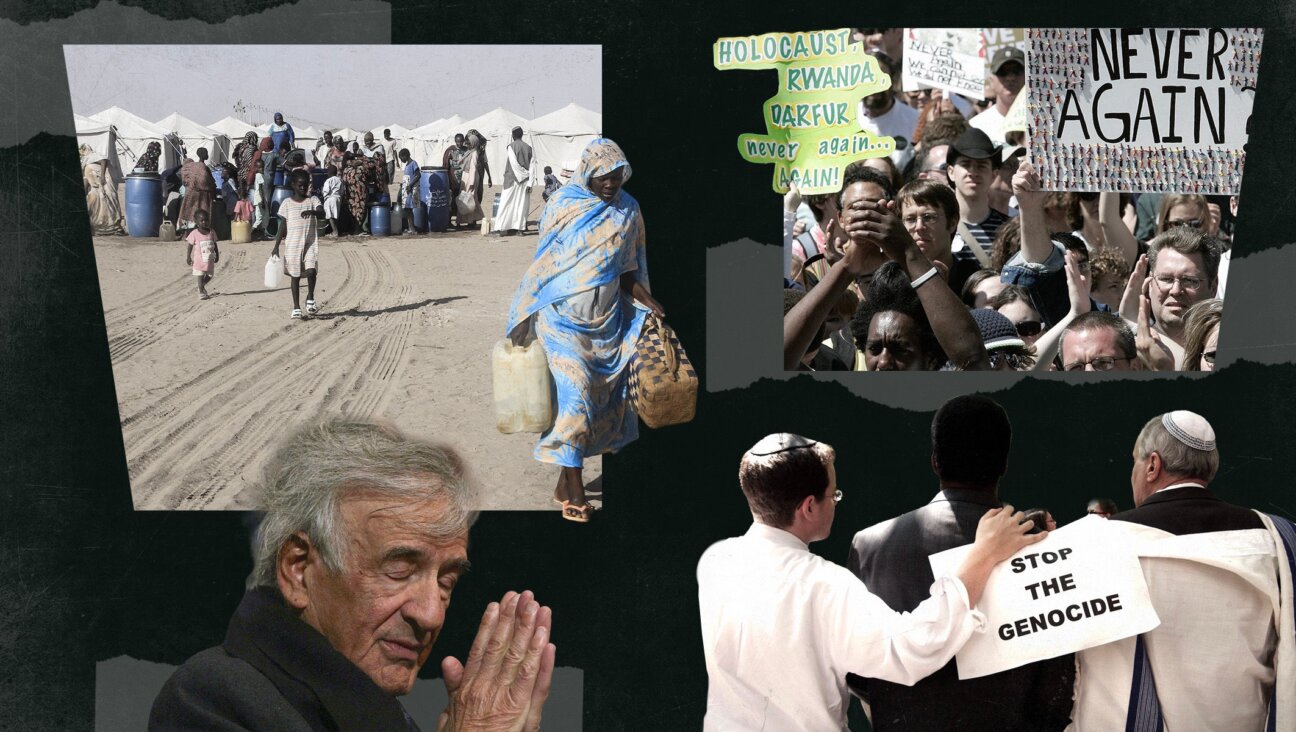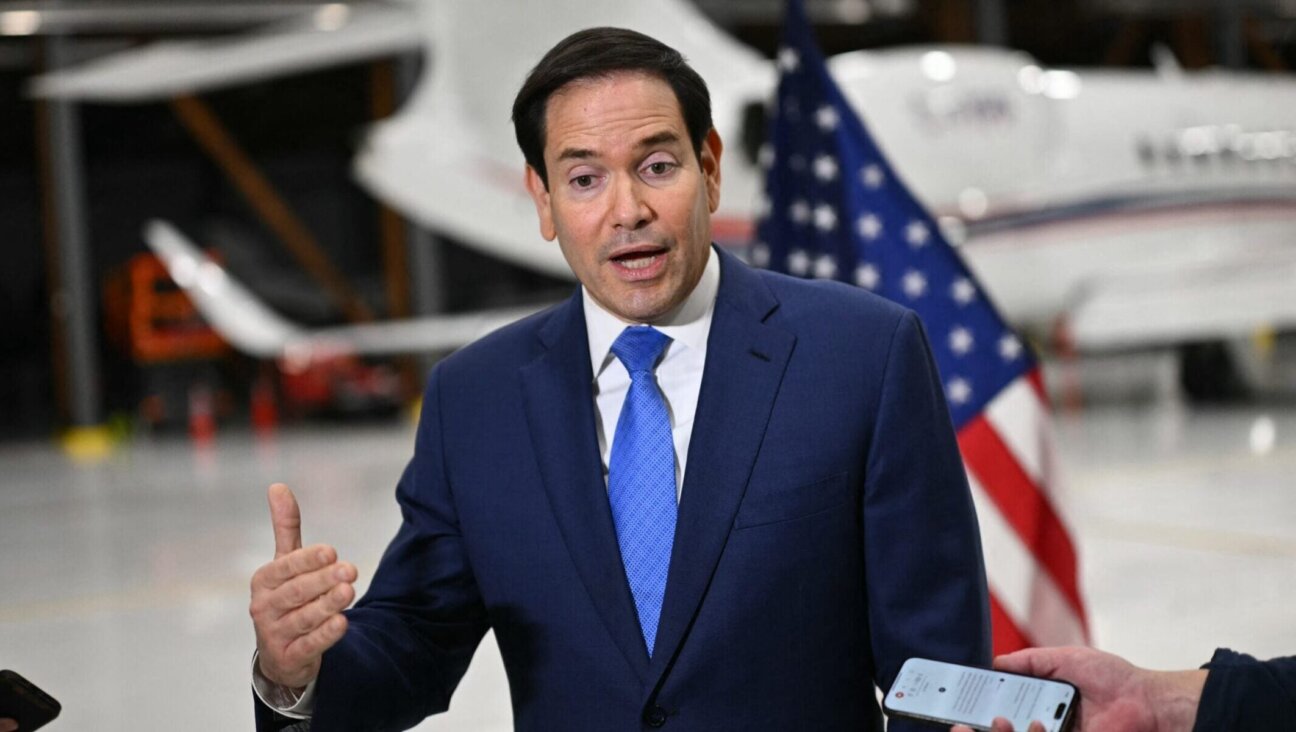Gibson Film Exposes Rift In Vatican Hierarchy
The debate over a papal screening of Mel Gibson’s controversial film has become a flashpoint between liberals and conservatives struggling for power in the Catholic Church under the ailing pope.
The pope saw “The Passion of Christ” and is said by conservatives to have praised it in a few words, saying, “It is as it was.” But in an indication of the pope’s advanced physical deterioration, some Catholic leaders are openly questioning the circumstances of the alleged papal remark and urging colleagues to use their own judgment on the film.
While reports of a papal thumbs-up for the film were met with skepticism and criticism by several respected Catholic and Jewish interfaith leaders, the Anti-Defamation League appeared to be backpedaling from its harsh criticisms of Gibson’s cinematic depiction of the final hours of Jesus’ life.
Some church liberals and Jewish communal officials involved in interfaith dialogue argued that it was still unclear whether the pope’s review of the film was reported accurately in the press, since no official confirmation of his position had been issued as of Tuesday. Others slammed the way the screening was organized and publicized by the pope’s conservative advisers, who have reportedly assumed extensive duties as the pontiff’s health has deteriorated.
Several observers suggested that the debate is part of a larger struggle between Vatican conservatives and liberals over the direction of the church. At issue in the struggle is the future of some reforms adopted at the Second Vatican Council, said Father John Pawlikowski, president of the International Council of Christians and Jews, an umbrella organization of interfaith groups. Among other things, those reforms forcefully repudiated the notion of Jewish collective guilt for the crucifixion of Jesus.
The discussion about the film “has become involved in this much larger discussion within the Catholic Church,” said Pawlikowski, a member of an interfaith panel of religious scholars that criticized a draft of a screenplay for the film. “It is a question as to whether Vatican II in its principal thrust is to be upheld and further amplified or whether what is considered its excesses need to be excised.”
A similar take on the debate over the movie was voiced by the top interfaith expert at the American Jewish Committee, David Rosen.
“This Gibson business has become something other than what it is,” Rosen said. “It has become an excuse for liberals and conservative Catholics to stake out their position.”
“The forces closest to the pope seem to be more of the conservative inclination,” said Rosen, who is based in Jerusalem. “They don’t influence how the pope views things, but they communicate in the name of the pope, and the moment you communicate, almost by definition, you interpret.” Pawlikowski said that the adviser who reportedly watched the film with the pope and relayed the alleged papal review, Msgr. Stanislaw Dziwisz, belongs to the conservative camp. One Vatican official told The Washington Post that Dziwisz has the “confidence” to “interpret the pope’s mind,” but Pawlikowski challenged the notion that the pontiff was being well served by his closest advisers.
“I remain as do others, very skeptical as to whether this ailing pope was fully briefed about the concerns we and others have expressed” about the film, Pawlikowski said. “The fact that Cardinal Walter Kasper, the person this pope appointed to oversee [Catholic-Jewish] relations, was not included in this process makes us seriously question the way in which this papal screening was handled by some of his advisers.”
The Forward could not confirm by press time whether Kasper, head of the Vatican’s Pontifical Council for Promoting Christian Unity, had participated in the papal screening, although sources believed he did not.
Some Vatican observers said it was not clear whether the pope in fact made the comment about “The Passion.” His own spokesman refused to confirm or deny whether he had seen the film. And most Vatican officials quoted in the press said they had heard the comment from a non-objective source, “The Passion”’s co-producer, Steve McEveety, who in turn said he heard it from Dziwisz.
“Until we hear it from him directly or his spokesman we have to take all of this with a certain degree of hesitation,” said Rabbi Eugene Korn, who recently stepped down as the chief professional on interfaith relations at the ADL.
Other critics of “The Passion” said that, even while hinting at confirmation of the pope’s reported statement, the Vatican appeared to be encouraging further analysis of the film. Among those advancing this argument was Eugene Fisher, director of Catholic-Jewish relations at the National Conference of Catholic Bishops. In an e-mail to Catholic scholars, Fisher said he was told by Cardinal William Keeler, the top church official in charge of relations with American Jews, that any statements attributed to the pope should not inhibit the conference from critiquing the film.
Supporters of the film, including Francis Maier, the chancellor of the Archdiocese of Denver, denied that political machinations were behind the papal screening of “The Passion” and the pope’s resulting comment. “Trying to find a political dimension of this in the Vatican proceeds from the false assumption that a monolithic statement could come out of the Vatican that would end all discussion of the film,” Maier said.
Maier, who saw the film with Denver Archbishop Charles Chaput, claimed he had seen confirmation of the papal endorsement from the pope’s spokesman.
Several interfaith scholars, however, attempted to downplay the pope’s reported comment on the film: “I’ve heard five words attributed to him in a sentence that contains no nouns,” said Philip Cunningham, executive director for the Center for Christian and Jewish Learning at Boston College. “It doesn’t mean a whole lot to me.”
The ADL, meanwhile, appeared to be backing away from its aggressive critique of Gibson’s film. The organization’s national director, Abraham Foxman, issued a guarded statement on the pope’s reported comments, saying that “if in fact his reaction to the film is positive” the organization respected the pontiff’s view.
Foxman seemed to be stepping back from the organization’s confrontational stand against the film. The group had previously expressed concerns that the film was likely to promote antisemitism. In his latest statement, Foxman said, “We must reserve final judgment on ‘The Passion of Christ’ until we have an opportunity to see the film.”
In an interview with the Forward, Rosen, of the American Jewish Committee, spoke out in general terms against Jewish groups that have adopted an adversarial approach to Gibson and his film. “They gave the impression this was some conflict between the Jewish view of history and Christian view of history,” Rosen said. “That was unhealthy.”
The apparent change in ADL tactics was criticized by Elan Steinberg, who recently returned to his post as executive vice president of the World Jewish Congress. “I thought I had heard what were judgments about the film, now I hear that we should reserve judgment of the film,” Steinberg said.
“I’m very concerned the Jewish community is going to be accused of censorship,” Steinberg said. “Those seeking to speak on behalf of the Jewish community have to be a little more careful when they enter into this process.”
One ADL leader, Seymour Reich, defended the organization’s approach: “Abe is saying he doesn’t know what the pope saw. He couldn’t continue to criticize the film; he doesn’t know if it’s changed or not.”
















